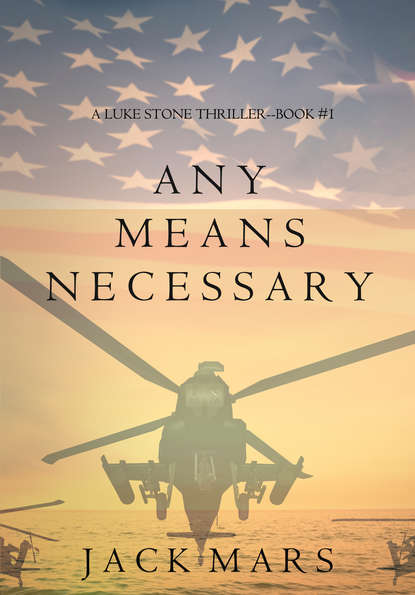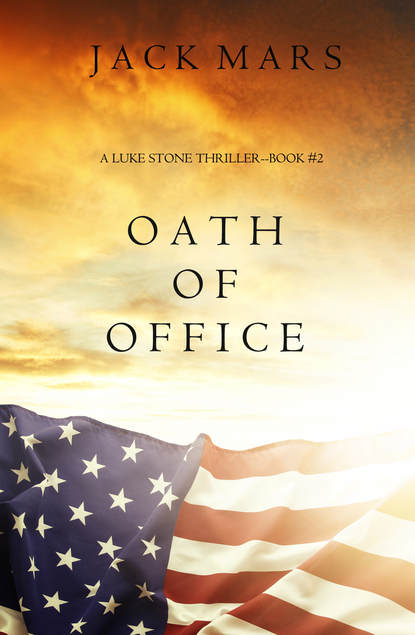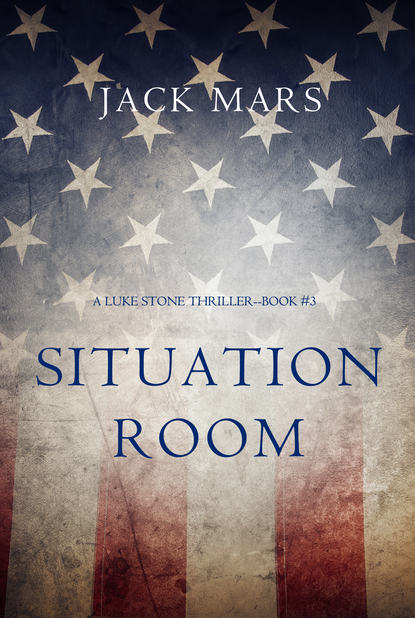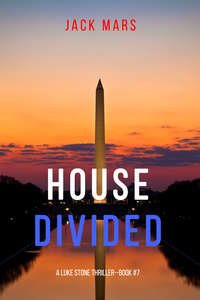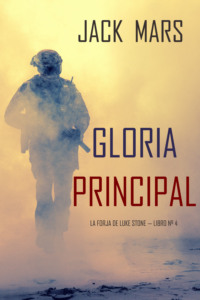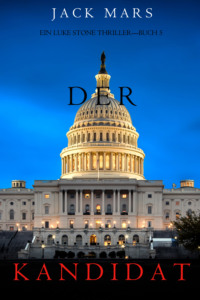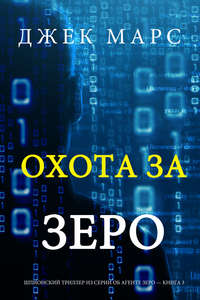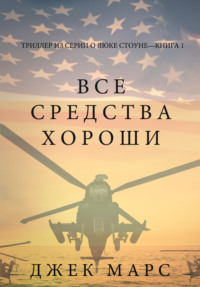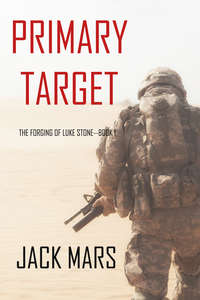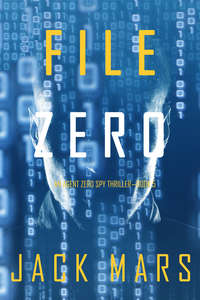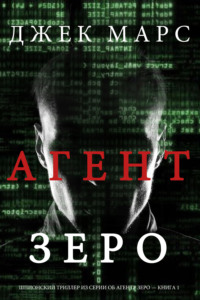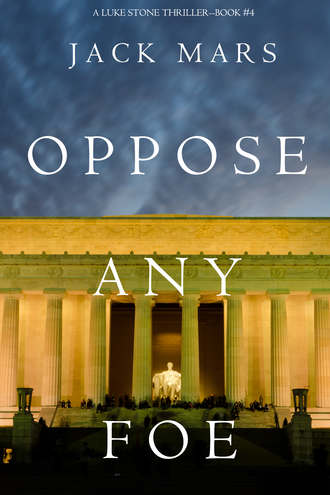
Полная версия
Oppose Any Foe
The windows of the Lexus shattered, the tires popped and the car sank to the ground. THUNK, THUNK, THUNK – bullets punched through its side panels. Steam rose from under its hood. The man in the truck was spraying it with machine gun fire.
Luke ran forward, ducking low. The bullets followed him, shattering the next car as it had the Lexus. Glass sprayed all over him.
A car alarm went off, rang for five seconds, then stopped as the bullets pierced the vehicle and destroyed the alarm system.
Luke kept running, his breath hot in his lungs. He reached the gas station and bolted across its wide open yard. The overhead lights cast eerie shadows – the gas pumps seemed like looming monsters. The pickup truck skidded into the lot behind him. Luke glanced back and saw it bounce over the curb and take the corner hard.
He raced down another side street, then darted left into an alley. It was an old cobblestone street. He stumbled over the rough and pitted surface. The truck’s engine squealed, very close. Luke didn’t look. A grinding, crunching sound came as the truck bounced over the cobblestones.
Luke felt it there – the truck was one second behind him.
His heart pounded in his chest. It was no use. He turned his head and there was the truck, right behind him. Its massive grille barreled forward, growing bigger and bigger as it came. It looked like a huge, grinning mouth. The hood of the truck was nearly as high as his head.
To Luke’s left there was a dumpster. He sensed it more than saw it. He dove behind it, falling to the cobblestones, landing hard in a tiny alcove. The impact rattled his bones, and he pressed himself against the wall, as tight as his body would go.
An instant later, the pickup rammed the dumpster, crushing it against the wall of the alley. The truck passed, just missing Luke, dragging the dumpster with it. It skidded to a halt in the alleyway fifty feet past the alcove. Its brake lights shone red. The dumpster was crushed between the driver’s side door and the wall.
Luke could retake the initiative, but to do so, he had to move.
“Get up,” he said.
He hauled himself to his feet, gun in hand, and wedged his body into the alcove. Two-handed, he aimed at the back window of the truck.
BLAM, BLAM, BLAM, BLAM.
The window shattered. The noise of his gun was deafening. It echoed down the alleyway and out into the silent city streets. If he wanted attention, and he did, this would bring it.
The truck’s tires screamed and shredded on the cobblestones, the driver trying to get free of that dumpster.
The passenger – the shooter – used the butt of his gun to smash out the remains of the back window. He was going to try for a shot.
Perfect.
BLAM.
Luke shot him, dead center in the forehead.
The man slumped, his head hanging out the back window, his gun clattering uselessly into the pickup’s bed.
The truck skidded sideways, its grille sliding along the wall, the driver’s side facing Luke now. Luke would take the driver too, if he could, but not with a kill shot. He would keep him alive to answer questions.
The driver was good – better than his friend. His window had been shattered by the collision, but he had ducked way down below it. Luke couldn’t see him.
BLAM, BLAM, BLAM.
Luke put three shots into the driver’s side door. The sound was hollow, metallic, as the bullets punched through. The driver screamed. He was hit.
Suddenly, the truck skidded sideways to the right, like a joyrider doing donuts in the snow. The pickup bed swung around and rammed the wall. But the truck had broken loose from the dumpster. If the driver was still able, he was free to make a run for it.
Luke aimed at the rear left tire. BLAM.
The tire popped, but the truck squealed out and peeled off down the alley. It bounced out onto the street, skidded, and went left. Gone.
Nearby, sirens were already approaching. Luke could hear them coming from several different directions. He holstered his gun and limped out of the alley, his knee already stiffening. He had scraped it falling to the cobblestones.
A DC police interceptor roared up, lights flashing, throwing crazy blue shadows against the surrounding buildings. Luke already had the badge out for them, the old badge from the defunct FBI Special Response Team. It still had a year left before it expired. He raised his arms high in the air, the badge in his right hand.
“Federal agent!” he shouted at the cops who burst from the car, guns drawn and trained on him.
“On the ground!” they told him.
He did exactly as they said, moving slow and deliberately, no threat to anyone.
“What’s going on here?” one of the cops said as he snatched the badge from Luke’s outstretched hand.
Luke shrugged.
“Somebody’s trying to kill me.”
CHAPTER SEVEN
10:20 a.m.
The White House, Washington, DC
It was like a state funeral, the grand opening of a used car lot, and an amateur comedy show rolled into one.
Susan Hopkins, the President of the United States, and wearing a blue dress and shawl made especially for this occasion by the designer Etta Chang, looked out across the South Lawn at the gathered dignitaries and journalists. It was a select group, and the hardest invitation to score in town for the past month. On a bright sunny autumn day, under blue skies, the White House – one of the most enduring symbols of America – was rebuilt and ready to go.
Secret Service men towered behind and just in front of Susan, taking any shooting angles away – she felt almost like she was lost in a forest of tall men. Washington, DC, Virginia, and Maryland were restricted flight zones this morning. If you hadn’t flown in by 7 a.m., you were out of luck.
The ceremony was running long. It had started just after 9 a.m., and already it was pushing toward 10:30. Between the opening military procession with the bugler playing Taps and the riderless horse in honor of Thomas Hayes, the release of a flock of white doves to symbolize the many others who had died that day and that night, the fighter jet flyover, the children’s choir, and the various speeches and blessings…
Oh yes, the blessings.
The rebuilt house had been blessed, in turn, by an Orthodox rabbi from Philadelphia, a Muslim imam, the Catholic Archbishop of Washington, DC, the minister of the North Capitol Street AME Zion Church, and the famous Buddhist monk and peace activist Thich Nhat Hanh.
The wrangling that had gone into picking the religious dignitaries – that alone had soured Susan’s taste for this event. An Orthodox rabbi? The Women of Reform Judaism were vocal with their annoyance – they had pushed for a female rabbi. Sunni or Shiite for the imam – there was no pleasing both. In fact, Kat Lopez had stuck a finger in both their eyes and gone with a Sufi.
Catholic groups were not thrilled about Pierre. The First Gentleman of the USA was gay? And married to a woman? Cats and dogs were lying down together. That question was resolved when Pierre decided to take a miss and watch the event from the apartment in San Francisco.
Pierre and the girls had largely disappeared from public life since the scandal. It was right to keep the girls away from the spotlight after everything that had happened, but this was an important event and Pierre hadn’t even wanted to come. That worried Susan a little. Really, more than a little. And of course, now the gay rights activists were furious with him for what they saw as his bowing to pressure from the Catholic Church.
At the podium, Karen White, the new Speaker of the House, was just finishing her speech. Karen was eccentric, to say the least – she wore a hat with a large paper sunflower on it. The hat was more appropriate for a children’s Easter egg hunt than for today’s event. If Etta Chang saw that hat, it would be time for a fashion makeover.
Karen’s remarks had been short on jabs at the liberals in government – thank God, because the special elections to re-constitute the decimated Congress were two weeks away. The campaigns had turned into a mindless hate-filled scramble – historians enjoyed going on CNN and FOX News to claim that the civil discourse in the country had reached its lowest ebb since the Civil War.
What Karen White lacked in offensive rhetoric on the domestic front, she more than made up for on the world stage. Her speech seemed to suggest – to the gasps of many in the audience – that the White House had been destroyed not by rogue elements of the conservative movement and the military here in the USA, but by foreign operatives, possibly from Iran or Russia. During one string of tortured logic, the special envoy from Iran had stood up and stormed away, two of his senior diplomats in tow.
“It’s fine,” Kurt Kimball, the National Security Advisor, said in Susan’s ear. “They all know Karen’s a little nutty. I mean, look at her hat. We’ll have someone from the State Department make it up to them.”
“How?” Susan said.
He shrugged. “I don’t know. We’ll figure something out.”
On the stage, Kat had given Susan the nod. They were ready for her. She stepped onto the stage as Secret Service agents moved into position around her. The podium was surrounded on three sides by clear bulletproof glass. She stood for a moment and surveyed the assembled crowd. She wasn’t nervous at all. Talking to the people had always been one of her strong points.
“Good morning,” she said. Her voice echoed out over the lawn.
“Good morning,” a few wisecrackers shouted back.
She launched comfortably into her prepared speech. It was a good one. She spoke to them about shared sacrifice, and about loss, and about resilience. She told them about the greatness of the American experiment – something they already knew. She told them about the valor of the men who had saved her life that night, and she recognized Chuck Berg – who was now the head of her home security detail, and was standing on stage with her – and Walter Brenna, who was an honored guest in the front row. Both men raised their hands and received thunderous applause.
She told them she was moving into the White House this very day – which brought a standing ovation – and she welcomed them inside after her remarks, to take a tour and see what she’d done with the old place.
She finished with a flourish, echoing that great hero of hers, and of everyone, John Fitzgerald Kennedy.
“Nearly sixty years ago, John Fitzgerald Kennedy was elected President. His inaugural address is one of the greatest and most quoted speeches ever delivered. All of you know that he told us in that speech to ask not what our country could do for us, but what we could do for our country. But you know? There’s another part of that speech, less well known, that I enjoy just as much. It seems particularly appropriate for today’s events, and I want to leave you with it. What Kennedy said was this.”
She took a deep breath, hearing in her mind the pauses that Kennedy had taken. She wanted to get his phrasing exactly right.
“Let every nation know,” she said, “whether it wishes us well or ill… that we shall pay any price… bear any burden…”
In the crowd, the cheering had already begun. She waved a hand, but it was no use. They were just going to do it, and her job now was to meet the rising swell of their outburst, somehow get ahead of it and above it, and race it to the finish line.
“Meet any hardship…” she shouted.
“Yes!” someone screamed, somehow cutting through the noise.
“Support any friend,” Susan said, and raised her fist in the air. “And oppose any foe… to assure the survival and the success of liberty!”
The crowd had come to its feet. The ovation went on and on.
“This much we pledge,” Susan said. “And more.” She paused again. “Thank you, my friends. Thank you.”
* * *The inside of the building gave her chills.
Susan moved through the hallways with her Secret Service contingent, Kat Lopez, and two assistants trailing close behind. The group passed through the doors to the Oval Office. Just being in here had a strange effect on her. She’d felt it before, just a week ago, when they’d first given her a tour of the renovated White House. There was something surreal about it.
Almost nothing had changed. That was part of it. The Oval Office seemed just the same as the last time she had seen it – the day it was attacked and destroyed, the day Thomas Hayes and more than three hundred people died. Three tall windows, with drapes pulled back, still looked out on the Rose Garden. Near the center of the office, a comfortable sitting area was situated on top of a lush carpet adorned with the Seal of the President. Even the Resolute Desk – a long-ago gift from the British people – was still there in its customary spot.
Of course, it wasn’t the same desk. It had been re-crafted from the original drawings sometime in the past three months in a woodworking shop in the Welsh countryside. But that was her point – everything looked exactly the same. It was almost as if President Thomas Hayes – taller than everyone around him by at least four or five inches – would walk in any minute and give her his customary frown.
Was she traumatized? Was this building a trigger for her?
She knew that she would prefer to live at the Naval Observatory. That grand old house had been her home for the past five years. It was light, open, and airy. She was comfortable there. In comparison, the White House – especially the residence – was creaky, cranky, dreary, and drafty in the winter, with bad light.
It was a big place, but the rooms felt cramped. And there was… something… about the place. You felt like you might turn any corner and run into a ghost. She used to think it would be the ghost of Lincoln or McKinley or even Kennedy. But now she knew it would be Thomas Hayes.
She would move back to the Naval Observatory house in a heartbeat – if only she hadn’t given it away. Her new Vice President, Marybeth Horning, was due to move in there during the next few days. She smiled when she thought of Marybeth – the ultra-liberal senator from Rhode Island – who had been on a fact-finding tour of human rights violations at egg farms in Iowa on the day of the Mount Weather attack. Marybeth was a firebrand for workers’ rights, for women’s rights, for the environment, for everything Susan cared about.
Elevating her to Vice President had actually been Kat Lopez’s idea. It was perfect – Marybeth was such an outspoken leftist that no one on the right would ever want to see Susan killed. They’d just wind up with their worst nightmare as President. And under the new Secret Service rules, Susan and Marybeth would never be in the same place at the same time for the rest of Susan’s term – hence Marybeth’s absence from the festivities today. That was kind of a shame because Susan liked Marybeth.
Susan sighed and glanced around the office again. Her mind wandered. She remembered the day of the attack. She and Thomas had been estranged for a couple of years. Susan didn’t really mind. She was having fun being Vice President, and David Halstram – Thomas’s chief-of-staff – made sure her schedule was kept busy with events far away from the President.
But that day, David had asked her to fly in and be by the President’s side. Thomas’s approval ratings had cratered, and the Speaker of the House had just called for his impeachment. He was under siege, all because he didn’t want to go to war with Iran. Of course, the Speaker was Bill Ryan, one of the leaders of the coup, who at this moment was in a federal prison, preparing to be transferred to death row.
She remembered how she and Thomas were poring over a map of the Middle East right in this office. They weren’t talking about anything, just bantering about this or that. It was a photo op, not an actual strategy meeting.
Suddenly, two men burst in.
“FBI!” one of them screamed. “I have an important message for the President.”
One of those men was Agent Luke Stone.
Her life had changed in that instant, and had not returned to normal since then. Her previous life might never come back, she realized. Her marriage had nearly been destroyed by scandal. Her daughter had been kidnapped. Susan had aged ten years in six months, as she weathered one terrorist or political attack after another.
Now she was faced with sleeping in this drafty old house, alone. They had spent a billion dollars renovating the place, and she did not want to live here. Hmmm. She would have to talk to Kat, or someone, about this.
“Susan?”
She looked up. It was Kurt Kimball. His sudden appearance snapped her back to reality. Kurt was tall and broad, with a head as round and smooth as a cue ball. His eyes were bright and alert. He was the picture of vitality and health at fifty-three. He was one of the people who thought fifty was the new thirty. Until she became President, Susan would have agreed with him. Now she wasn’t so sure. She was two years shy of half a century herself. If things kept up the way they had been going, by the time she got there, fifty was going to be the new sixty.
“Hello again, Kurt.”
“Susan, Agent Stone is here. He interviewed Don Morris in Colorado last night. He thinks he may have intelligence we want to hear. I haven’t spoken with him yet, but my people tell me he was involved in an incident when he arrived back in Washington early this morning.”
“An incident? What does that mean?” It didn’t sound good. But then again, when wasn’t Agent Stone involved in an incident?
“There was a shootout in Georgetown. Two men in a truck apparently tried to murder him. Luke killed one. The other escaped.”
Susan stared at Kurt. “Was it related to Don Morris?”
Kurt shook his head. “We don’t know. But it happened about two blocks from the apartment of Trudy Wellington. Wellington has disappeared, as you know, but it seems that Stone went to her apartment as soon as he landed from interviewing Morris. The whole thing is very… unusual.”
Susan took a deep breath. Stone had saved her life more than once. He had rescued her daughter from the kidnappers. He had saved countless lives during the Ebola crisis, and during the North Korean crisis. He had even done the world a favor and assassinated the dictator of North Korea while he was there. He was an invaluable asset to Susan’s administration. More than that, he was Susan’s secret weapon. But he was also unstable, he was violent, and he appeared to involve himself in things that he shouldn’t.
“Anyway,” Kurt said. “We have him here, and he has a report to give. I think we should break in the new Situation Room right away and debrief him.”
Susan nodded. It was almost a relief to have something to sink her teeth into. The Situation Room here at the White House was a dedicated space, nothing like the converted conference room they had been using at the Naval Observatory. It was a totally renovated and updated command center, with the latest in high-tech wizardry. It would expand their strategic capabilities tremendously – or so she was told.
The only problem? It was underground, and Susan liked windows.
“Give me a few moments to get changed, okay?” Susan indicated the fancy, one-of-a-kind designer dress she wore. “I don’t know if this thing works for an intelligence meeting.”
Kurt smiled. He made a show of looking her up and down.
“Nah. Come on. You look great. People will be impressed – you came right in from the dedication and went to work.”
* * *Luke rode the elevator with a crowd of people in suits, down to the Situation Room. He was tired – he had spent two hours being interviewed by the DC cops, then caught a few hours of fitful sleep. He had missed the dedication ceremony entirely.
Things like the rebuilt White House and its reopening just weren’t on his mind. He barely noticed the place, or the crowds ooohing and ahhhing over it. He was lost in a forest of dark thoughts – about himself and his life, about Becca and Gunner, and about Don Morris, his choices and the end to which he had come. Luke had also killed a man last night, and he still had no idea why.
The elevator opened into the egg-shaped Situation Room. It was smaller and more cramped than the former conference room they’d been using over at the Naval Observatory. It was also less ad hoc, less tossed together. The place looked like the command module on a Hollywood spaceship. It was set up for maximum use of the space, with large screens embedded in the walls every couple of feet, and a giant projection screen on the far wall at the end of the table. Tablet computers and slim microphones rose from slots out of the conference table – they could be dropped back into the table if the attendee wanted to use their own device.
Every plush leather seat at the table was occupied – mostly with middle-aged, overweight decision makers. The seats along the walls were filled with young aides and even younger assistants, most of them tapping messages into tablets, or speaking into telephones.
Susan Hopkins sat in a chair at the closest end of the oblong table. At the far end stood Kurt Kimball, Susan’s National Security Advisor. A sprawl of usual suspects took up the seats in between them.
Kurt noticed Luke enter and clapped his big hands. It made a sound like a heavy book dropping to a stone floor. “Order, everybody! Come to order, please.”
The place quieted down. A few aides continued to talk along the wall.
Kurt clapped his hands again.
CLAP. CLAP.
The room went dead quiet.
“Hi, Kurt,” Luke said. “I like your new command center.”
Kurt nodded. “Agent Stone.”
Susan turned to Luke and they shook hands. Luke’s big hand swallowed her tiny one. “Madam President,” he said. “Good to see you again.”
“Welcome, Luke,” she said. “What do you have for us?”
He looked at Kurt. “Are you ready for my report?”
Kurt shrugged. “That’s why we’re here. If it weren’t for you, we’d all be upstairs enjoying the festivities.”
Luke nodded. It had been a long day, and it was still early. He wanted to finish this up and go out to the country house he had once shared with Becca. Everything was too much right now, and what he most wanted to do was take a nap. Just nap on the couch, and maybe later, in the late afternoon, sit outside with a coffee and watch the sun set over the water. He had a lot to think about, and a lot of planning to do. An image of Gunner appeared in his mind.
All eyes were on him. He took a deep breath. He repeated what Don had told him. Islamic terrorists were going to steal nuclear weapons from an air base in Belgium.
A tall heavyset man with blond hair raised a hand. “Agent Stone?”
“Yes.”
“Haley Lawrence. Secretary of Defense.”
Luke had known that. But until this moment, he had forgotten it.
“Mr. Secretary,” he said. “What can I do for you?”
The man gave a slight smile, almost a smirk. “Please share with us how you think Don Morris obtained this intelligence. He’s in a federal high-security facility, the highest security we currently have, held in isolation in his cell twenty-three hours a day, and has no direct contact with anyone except the guards.”
Luke smiled. “I think that’s a question for the guards to answer.”
A ripple of laughter went around the room.
“I’ve known Don Morris a long time,” Luke said. “He’s probably one of the most resourceful people alive in the United States at this moment. I have no doubt that he receives intelligence, even in his current location. Is it accurate intelligence? I have no idea, nor does he. He doesn’t have any way to confirm it or discredit it. I guess that’s our job.”
He gave Kurt a sidelong glance. “Those are all the details I have. Any thoughts?”
Kurt paused for a moment, then nodded. “Sure. This will be a little bit on the fly, but mostly accurate. Belgium has been much on my mind in recent years, for obvious reasons.” He turned to an aide standing behind him. “Amy, can you bring us up a map of Belgium? Key in on Molenbeek and Kleine Brogel, if you don’t mind.”
The young woman fiddled with her tablet, while another aide turned on the main display monitor behind Kurt. A few seconds passed. The monitor ran through a few internal tests, then showed a blue desktop. A quiet buzz of conversation started again.
Kurt watched his aide. She nodded to him, and then he looked at the President.
“Susan, are you ready?”
“Ready when you are.”


